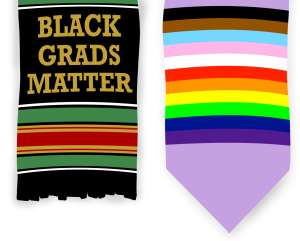
In a brief filed on April 11, the U.S. Department of Justice said that the Texas Voter Identification law, which would require voters to bring legal identification to the polls when casting their vote, is discriminatory and would “disenfranchise at least 600,000 voters who currently lack necessary photo identification.”
Although the law was is designed to prevent voter fraud, the brief stated that “minority registered voters will be disproportionately affected by the law, based on both a greater likelihood of lacking a required form of photo identification and a lesser ability to obtain a necessary identification.”
A select committee was created in the Texas House of Representatives to discuss the bill in March.
Representative Scott Hochberg (D) was one of nine representatives to serve on the committee during its brief meetings. When asked about committee proceedings, Hochberg said, “We didn’t consider various alternatives, and we didn’t meet for very long.”
Hochberg voted against the passage of the bill.
“The bill wouldn’t solve the problem even if the problem did exist,” Hochberg said. “College students know how easy it is to get a fake photo I.D.”
Hochberg claimed the problem lies more in the registration process than at the polling places. He proposed two bills he thought might fix the problem.
“The second bill, which I passed through both the House and Senate in 2009 with only one ‘no’ vote, would have let the Secretary of State adopt standards for fixing clerical errors on voter registration applications,” Hochberg said. He explained that many potential voters are denied registration due to file mismatches “that were clearly typos on the voter registration date file.”
“The governor vetoed this bill, saying that misspellings were evidence of fraud,” Hochberg said. “Ironically, his own veto message had a misspelling.”
Charles Wilkison, the director of external public relations with Mobilize, Organize, Vote and Educate (M.O.V.E.) at UTSA, is also personally against the law. “Many folks, particularly in the working class and working poor communities, simply cannot afford to make extra trips to the DMV to obtain forms of identification that they had previously never needed,” Wilkison said. “This bill was simply another poll tax, aimed specifically at the youth, elderly and working class peoples of Texas in order to make it as difficult as possible for these groups to vote.”
However, Ian “Rooster” Jacobson, chairman of College Republicans at UTSA, disagrees with this stance.
“If voter discrimination is a requirement, I feel that offering free identification to people should alleviate the problem of those who would be otherwise disaffected,” Jacobson said. “It would also make it difficult for people to vote as somebody else.”
When asked if he found the law discriminatory, Jacobson responded, “The voter ID law is absolutely discriminatory. It discriminates against those who would try to cast an illegitimate vote. They are not a protected group. There is no specific citizen group that would be affected by this law. Minorities who are in this country legally have no problem obtaining identification. Working class citizens need to have identification to get a job, so I don’t foresee them being grossly impacted by this law.”
Texas is one of nine states required by the Voting Rights Act to pre-clear any attempt to change voting qualifications or procedures with relation to voting. The Justice Department has blocked the state from using the voter ID law in the May 29th primary elections.
Attorney General Greg Abbott’s office has brought a lawsuit against the Justice Department that challenges the constitutionality of Section Five of the Voting Rights Act, the section that requires federal preclearance of any changes to voting procedures.
A trial over the law is scheduled to begin in July.










